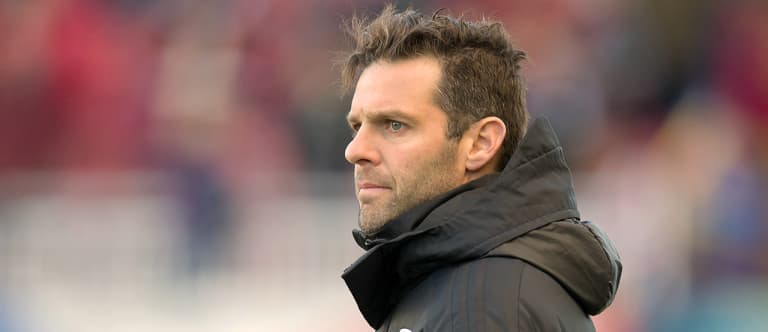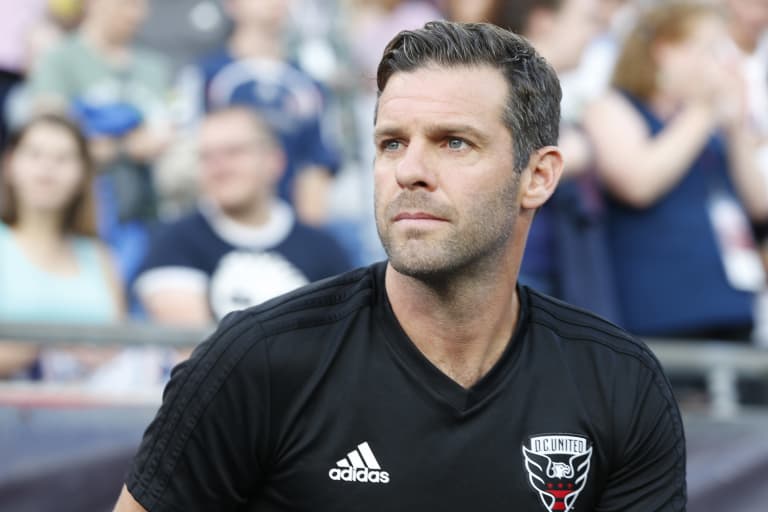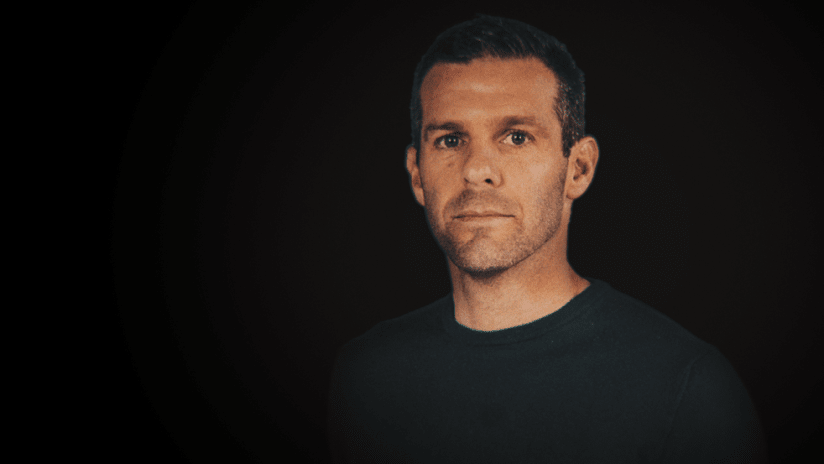WASHINGTON – Last week D.C. United head coach Ben Olsen and I had a wide-ranging, thought-provoking conversation about the suspended MLS season, the COVID-19 pandemic and other topics. It was a good chat and the article that resulted from it was scheduled to run this week.
Then the world changed.
In the days after we talked, millions of people took to the streets in dozens of communities across the United States and beyond to protest the murder of George Floyd at the hands of a Minneapolis police officer, and the deeper problem of police brutality that has finally become impossible to gloss over for huge swathes of the American public.
The nation’s capital has become an epicenter of these developments, with some protests beset with violence over the weekend and a heavy-handed crackdown by police and military reaching its nadir on Monday evening. The city imposed a 7 pm curfew on Monday and Tuesday and hundreds have been arrested this week, while federal officials have called in additional military units from across the country.
Protests on the doorstep
Olsen has lived and worked in the District of Columbia for 20 years as a United player and coach. For the past decade-plus he and his wife Megan and their three children have lived in a rowhouse in Shaw, a history-rich neighborhood along the U Street corridor, the bustling mercantile and nightlife area dubbed “Black Broadway” decades ago because of its centrality in African-American music and culture during segregation times.
As protesters and police forces stream through the streets his family calls home, military helicopters swooping overhead, it seemed ludicrous to write about Olsen without addressing the current situation.
“The story has changed, hasn’t it?” he deadpanned when we got back on the phone on Tuesday. And so, it appears, has his outlook.
“I'm a little bit more charged up than usual just because it's in my ‘hood now. We’re here. It's helicopters all night,” he said. “It's heavy. Obviously there's a curfew at seven o'clock. I have three kids right now, that is part of my focus and making sure they understand what's going on. And that it's not a simple issue, but there's a reason why there's angst and frustration. And it's not people protesting and starting fires and breaking windows for no reason. There's a frustration that has been built up.
“This is in front of my children's eyes right now when they go outside and they see, 30 feet from their home, destruction and boarded-up storefronts and signs and messaging with harsh language they can read,” he added. “Of course they're not going to be able to grasp the complexity of this. But to make sure they understand that there's a reason – there's many, many reasons – why this is happening, and that they are going to be part of the generation that helps change some of the systematic issues that have brought this to this point.”
It’s not that Olsen was previously unaware of the pervasive presence of racism, institutional and otherwise, in America. He recognizes his privilege as a middle-class white male, and he’s spoken out on a range of social and political issues over the years. Perhaps most memorably, in 2012 he donned a gag to express his support for D.C. statehood – District residents, the majority of whom are people of color, are disenfranchised at the national level, lacking voting representation in both the House of Representatives and the Senate – in a public-awareness campaign by DC Vote.
But the events of the past week are a watershed moment, and he knows it.
“Look, I moved into Black Broadway 10 years ago, and a big part of that was to be around a culturally diverse neighborhood that my kids could thrive in and be exposed to,” Olsen said. “In some ways, I think I get it. But I got no idea. You know, we got no idea, man. And my empathy is higher than ever. My eyes are open more than ever. And I’m certainly not the only one.”

Ben Olsen has been head coach of D.C. United since August 2010 | USA Today Sports Images
Growing up a smart-aleck kid in Middletown, Pennsylvania, Olsen occasionally tangled with the local authorities, and he recalls those experiences as he, like many others in these times, comprehends the full weight of the deadly peril that even the most mundane interactions with the criminal-justice system can pose for black Americans.
“As a kid, we grew up in a small town [where] cops were a little bit of the enemy. But that wasn't because I feared for my life if there was some type of incident. It was because I was a bit of a punk,” he said.
“When I got pulled over by cops, it was about ‘sht, I've got to pay this fine,’ or ‘oh sht, I'm going to get a couple points on my license.’ That’s what went through my head. So that’s privilege. And I understand that a little bit more now than I did a couple weeks ago and my eyes are a little bit more open than they were a few months ago. And I think that's healthy, and I think that's a result of people hitting the streets and showing that enough is enough.”
Taking action

Ben Olsen on the protests in DC: "This has made me evaluate what I stand for" | USA Today Sports Images
While he recognizes the limitations of his own place in this conversation, Olsen is ready to lend his voice to the search for solutions, even as a longtime and vocal skeptic of Twitter and other such platforms.
“I'm disappointed in myself for sitting on the sidelines, as I do have a platform,” he said. “This has made me evaluate what I stand for and how I use that platform more than ever in my life – to the point where I might even go on social media. You know that says a lot.”
At the moment, though, Olsen is far more comfortable listening to and amplifying others than he is speaking out. He speaks to his neighbors about how they’re coping with the multi-layered crisis, and recommends the recent video chat between MLS players CJ Sapong and Kei Kamara about their experiences. And he wants to provide the space for United’s players and staff to express themselves if and when they see fit to do so.
“I’m also using this time to shut up and listen,” he said. “It is a time of listening … and making sure that we are supportive in this time for the players, in particular the players that are being directly affected by this situation.”
Olsen doesn’t pretend to have the answers for the nation’s profound predicament. But he’s certain of one thing.
“Things have to change.”










